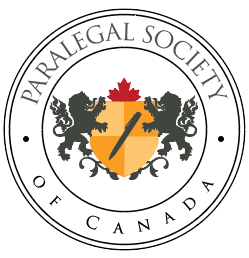Originally Posted on Law Times written by Alex Robinson.
The Law Society of Upper Canada has approved a plan that will eventually expand the scope of family law to let paralegals offer some services in the area.
Benchers voted Friday morning to create a new licence to train paralegals in certain aspects of family law, including form completion, motions to change and uncontested divorces. The proposal was part of an action plan in response to a report commissioned by the law society and the provincial government that sought ways to provide more access to justice for the large numbers of self-represented litigants in Ontario’s family courts.
More than 57 per cent of people in Ontario who engaged with the family court system in 2014-15 were self-represented, according to government statistics.
In the report, Justice Annemarie Bonkalo recommended paralegals should be allowed to represent clients in matters such as simple joint divorces without property, but she drew the line at more complex proceedings.
Bencher Howard Goldblatt, who is chairman of the LSUC’s access to justice committee, told Convocation that the expansion and exploration of the role of paralegals in the area is crucial.
“Family law is complex. It has the potential to dramatically impact lives at challenging, testing and difficult times,” he said.
“The action plan will help to identify areas and circumstances where people facing complex emotional issues and financial hardship can benefit from a strengthened provincial family law system with increased capacity and resources.”
The idea of allowing paralegals to practise in family law has been highly controversial among family lawyers, who have argued that their work is too complex for paralegals. They have also argued that adding them into the marketplace would do little to help the access to justice problems in the family law area.
But proponents have maintained that something must be done to tackle the access to justice problems present in the family law courts.
“Many people who access the family justice system without a lawyer do so either because they cannot afford one or they think that they can manage on their own,” said Ontario Attorney General Yasir Naqvi, who made a rare appearance at Convocation to support the action plan.
“Many of these people find the task of navigating the family system alone difficult and confusing.”
He said that the need for enhanced access to justice in the area prompted a search for alternative and affordable models of service delivery.
Other steps in the action plan include assessing what additional family legal services by paralegals are in the public interest and considering experiential training for law students.
Going forward, the law society will also continue to support the expanded use of unbundled services and legal coaching.
Arguing against the proposal, Bencher Raj Sharda said that there is a “skillset deficiency” between lawyers and paralegals, as the accredited programs that already exist for paralegals do not provide the appropriate skillsets.
“Until you can establish a baseline of competency for the over 9,000 paralegals that we’ve licensed up to now, we’re putting this on quicksand, and that’s not helpful to the public interest,” he said.
Bencher Rocco Galati questioned whether paralegals’ services in the area would in fact be more affordable than those offered by lawyers.
“We may be engaging in a three-year placebo,” he said.
Others asked that the vote on the proposal be delayed a month so that more consultation could be done on the action plan, which was released late Thursday afternoon. Bencher Joe Groia put forward an unsuccessful motion to adjourn the proposal until January Convocation.
The action plan was approved by a show of hands with two votes against and a handful of abstentions.
Goldblatt said that more than 160 individuals and organizations provided submissions in the consultation after Bonkalo’s report was released. He also stressed that this was simply the beginning of what would be a deliberative process in which stakeholders would be consulted along the way.
“We are going to approach this in a consultative, deliberative and measured way,” he says. “So those who have said ‘why move quickly?’ — we have to start and this is our beginning.”
